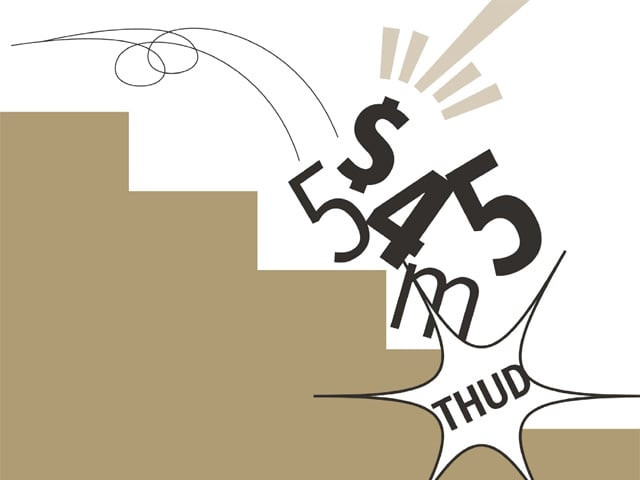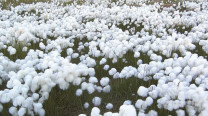Current account improves, $477m surplus in September
Current account deficit for first quarter of current fiscal year (July-September) narrows to $545 million.

Data released by the central bank also showed that the country’s trade balance stood at $2.97 billion for the first quarter of fiscal year 2011 against $2.81 billion during the same period last year. Pakistan’s trade deficit for September stood at $1.16 billion, compared with $1.24 billion in August.
The country also received current transfers of $1.46 billion during the outgoing month, compared with $1.17 billion in August. The current account deficit for the fiscal year 2010 was $3.495 billion, compared with $9.261 billion in fiscal year 2008-09.
Experts have attributed the fall in imports during September to reduced demand for furnace oil, high speed diesel and other fuels during the preceding month. They explained that due to the recent flooding in the country, many refineries and power stations reduced their consumption of furnace oil while transport has also affected, bringing down demand.
The central bank prepares accounts based on the realisation of cash flows and hence this decrease has registered during the month of September. “Now that the floods have subsided and activity has resumed, consumption is on the rise again and so is the oil import bill,” commented Hammad Aslam, head of equity at BMA Capital.
He pointed out that the weakening of the US dollar against other currencies has notched up international oil prices. “Currently, crude oil is trading at around $82 per barrel. If it continues to climb it could have negative consequences for the current account,” said Aslam.
“We have forecasted the current account deficit to stand at around 1.5 per cent of the gross domestic product (GDP) for this fiscal year. However, if oil prices were to reach $100 per barrel it could mushroom to two per cent of the GDP or even higher,” warned the analyst.
Experts have pointed out that the flow of remittances to the country has improved in recent months. They attribute this increase to the shift of currency transfers from unregulated to regulated channels. Moreover, remittances are expected to continue to grow at about 20 per cent on a yearly comparison.
While reconstruction activities are expected to increase aggregate demand in coming months, experts doubt that this will have a significant impact on imports. “Most of the affected areas are rural or semi-urban and infrastructure losses are mostly roads and small bridges,” explained one observer. Meanwhile, the lack of support from foreign donors remains a concern as the country has not realized the desired level of support pledges.
“Food imports could also aggravate the trade account further,” highlighted Aslam, adding that the country is already importing sugar and it is likely that about two million bales of cotton will have to be imported during the year.
Analysts also stressed that there was a dire need to attract investments to the country.
“The agriculture and livestock sectors are some areas that hold tremendous potential,” said Khurram Shehzad, Research Head at InvestCap.
The central bank had earlier reported that foreign investments fell by 28.5 per cent in the first quarter of the current fiscal compared with the same period last year. Experts have warned that rising current account deficit coupled with ebbing foreign inflows could erode the country’s foreign exchange reserves in coming months.
Published in The Express Tribune, October 20th, 2010.



















COMMENTS
Comments are moderated and generally will be posted if they are on-topic and not abusive.
For more information, please see our Comments FAQ